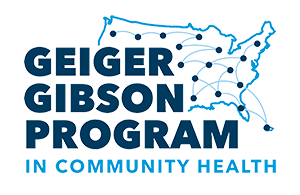The Commonwealth Fund and GWU’s Milken Institute School of Public Health have released a new report, How Potential Federal Cuts to Medicaid and SNAP Could Trigger the Loss of a Million-Plus Jobs, Reduced Economic Activity, and Less State Revenue.
While specific federal funding cuts are pending the budget reconciliation process, the recently passed House budget resolution includes cuts targeting at least $880 billion in Medicaid and $230 billion to the Supplemental Nutrition Assistance Program (SNAP) over 10 years. The report shows that if implemented, these cuts could result in the loss of 1 million jobs, a $113 billion decline in states’ gross domestic products (GDPs), and loss of $8.8 billion in state and local tax revenue in 2026 alone. Medicaid and SNAP cuts could cause a combined $1.1 trillion loss to critical programs and services nationwide by 2035.
Dr. Leighton Ku, professor of Health Policy and Management and Director of GW’s Center for Health Policy Research is lead author of the report, which includes a state-level analysis of the impact of these potential funding cuts. The ripple effects will course through the entire health care system, with severe consequences.
You can read the press release on the Commonwealth Fund’s website, and find the full report here: How Potential Federal Cuts to Medicaid and SNAP Could Trigger the Loss of a Million-Plus Jobs, Reduced Economic Activity, and Less State Revenue. Detailed tables with estimates for every state and DC are also available.
Also online is an earlier Commonwealth Fund report by Dr. Ku and colleagues about the economic impact of letting the enhanced premium tax credits for the ACA health insurance marketplaces expire at the end of this year: The Cost of Eliminating the Enhanced Premium Tax Credits.



